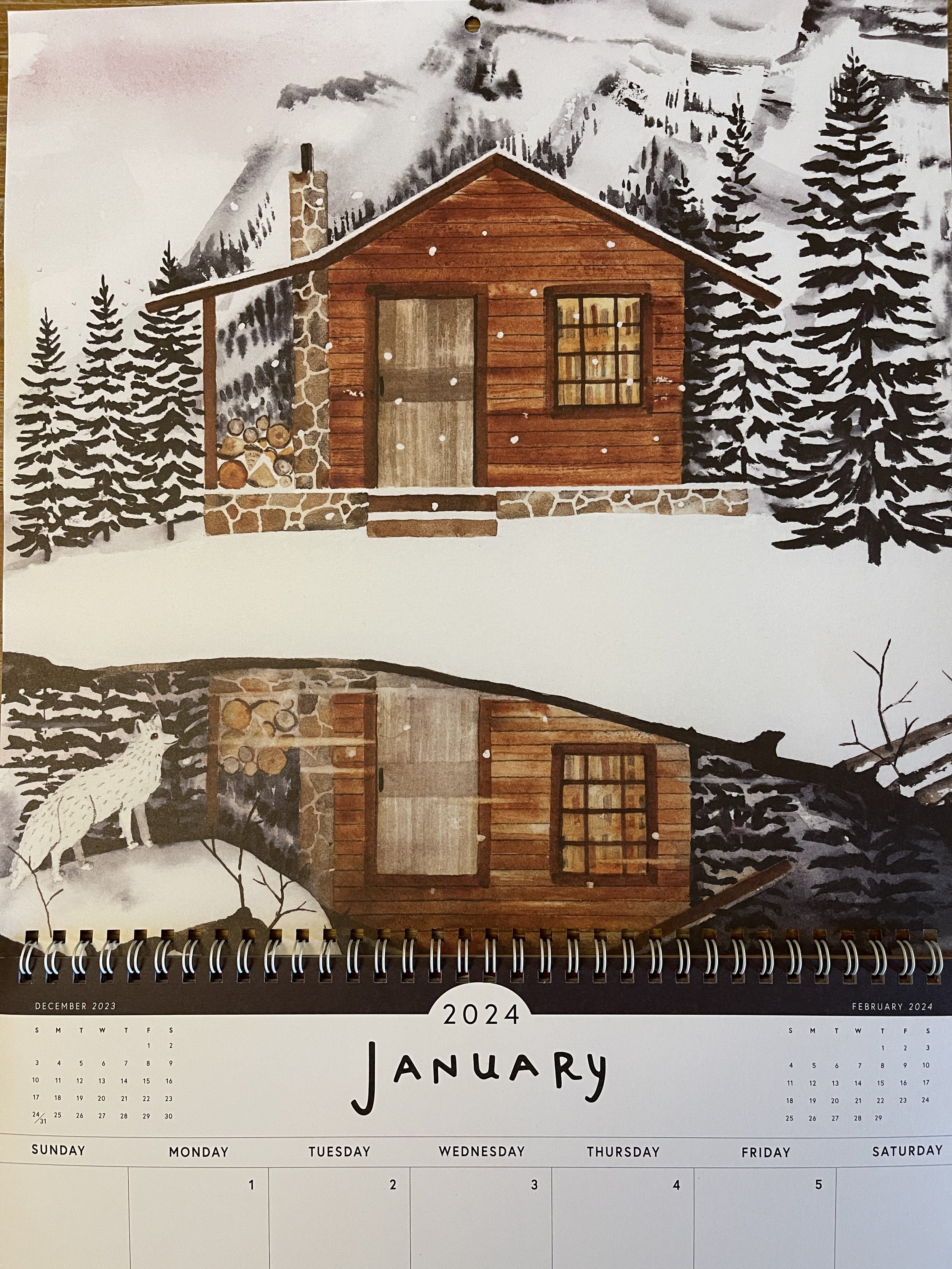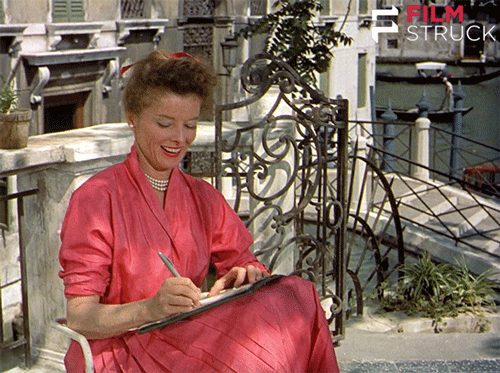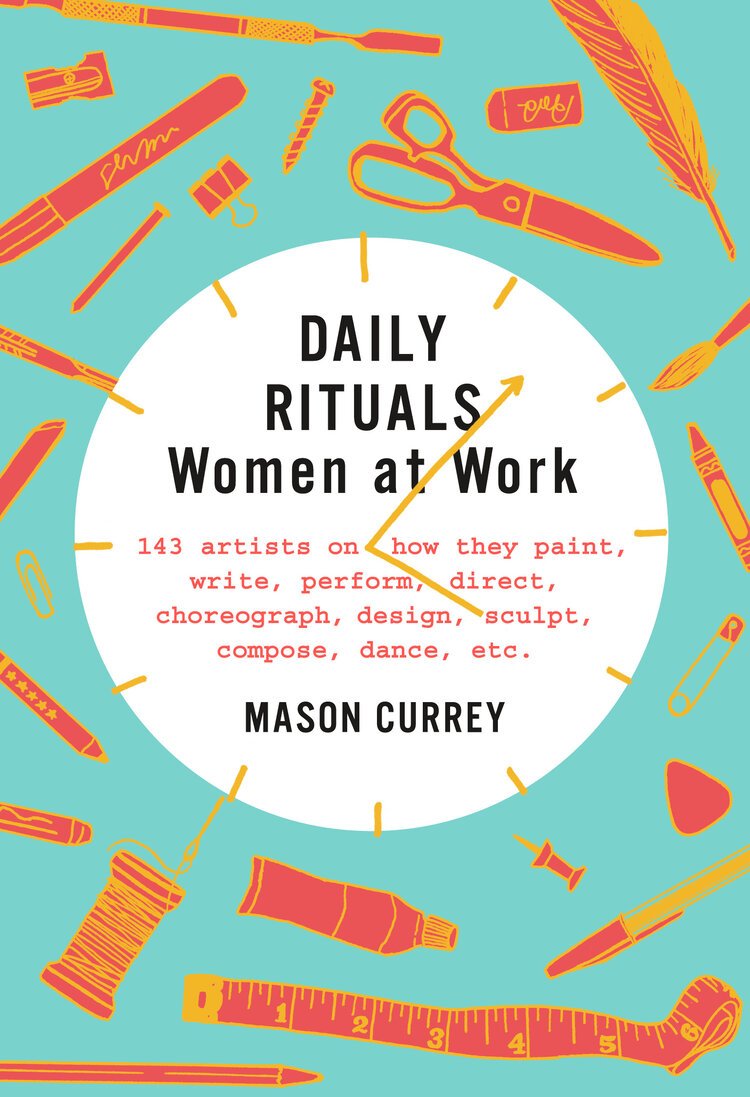“A self that goes on changing is a self that goes on living.”
Happy New Year! I rang in 2024 with 108 sacred bells at my Zen center and it was a gorgeous beginning to the year. We sat in a candlelit room, taking turns softly hitting the gong as we meditated for over an hour. I was wrapped in a warm shawl, allowing the past year to flow through me, sending out gratitude and lovingkindness. Listening to the distant sounds of revelry outside. Feeling the presence of those in the room with me.
Each bell would bring me into the present moment, the vibrations rippling through me like medicine. We knew it was midnight when the final two gongs sounded. I thought I would miss the champagne and seeing the ball drop, but, nope: I can think of no better way to meet all that this year will bring. To welcome another year of life with silence reminded me of how sacred each moment of our lives is--our breath, the water we drink, the roofs over our head. I knew as those bells sounded that there was so much suffering in the world, even in the room with me, even within myself. And yet, the bells keep ringing...Humans are pretty damn beautiful when they're not blowing things up.
Speaking of beautiful humans: have any of you seen this gorgeous 60-second meditation? I LOVE IT SO MUCH.
Click on it now and see what happens. If anything about the season you're in right now doesn't have 108-bell-high-vibe-energy, that's okay: being human is the hardest job in the world.
I'm behind on all my journaling and reflecting, but I think that's a good thing. I rather like the idea of easing into a new year and taking the time to let 2023 metabolize and try this new year on for size slowly, cozily, and with discernment. The above image is my new calendar, which I adore, not least of which because January features "The Writer's Cottage: A place to find your voice." This whole image is chocolate for my writing soul: dark hot cocoa with maple marshmallows, anyone?
I'm excited by the idea of place being connected to voice and I wonder what the past few years of living in L'Etoile du Nord has done to mine.
It feels a bit softer, a bit more thoughtful. These long winter months bake that slower pace into you. I have more than ever to say, but there are new ways of saying it that are emerging. I'm curious how your places are impacting your work. One of my favorite things is when a writer mentions in their acknowledgments where they wrote a book and why that mattered. (If you haven't listened to Barbara Kingsolver talk about Demon Copperhead, voice, and place on the Armchair Expert podcast, you're in for a treat.) Anyway, don't you just want to rent that cabin right now?!
Above: Miss Circe...not sure which of us needs the sun lamp more!
See that picture on the bottom left of the whiteboard, the one with the hands? It's from an issue of National Geographic and these handprints are considered one of, if not the very first, examples of human art. Those are ancient handprints, created and left there...why? What compelled those early humans to leave their handprints behind? That need to create, to share, to make a mark--it's in all of us.
We are in the lineage of whoever decided to decorate those cave walls.
An ancient lineage of creators who, despite darkness and fear and illness and uncertainty, took the time to make some beautiful. Something that would outlast them and serve to inspire future generations. Something they didn't get paid to do. Food for thought for those of you who are feeling a bit hopeless, and dreading - if you're American - the upcoming presidential election and everything that's happening to vulnerable people in the US and on its borders. There is a lot to be afraid of no matter where you are, and I suspect those early humans were deep into fight-flight-freeze mode on the regular. But they still made art because they were compelled to. Sometimes you get paid when you're compelled to make things and sometimes you don't. Bet they had no idea I'd be writing about their work a gazillion years later, looking at it every day for inspiration as I try to make sense of what the point of me writing anything is. I also feel such sweet love for our species when I think about how, as kids, our handprints were some of the first works of art we were taught to create, too.
The Page of Pentacles makes me think of those handprints and the people who made them: let's see what happens, let's try a thing, let's risk making fools of ourselves.
This happens to be the card I pulled for the year, which is so perfect for where I'm at now with all my new endeavors and projects. The Page is the youngest of the court cards and is all about curiosity and beginner's mind. The pentacles represent our livelihood and the concerns of day-today life, including our homes and families. I love this card's illustration from the Light Seer's Tarot: she's rooted in the earth and sacred tradition while staying in motion with the mandala that is her complex life's weavings.
It can be hard to be the Page because it's an admission that there is more to learn and a willingness to fail. It's knowing you have a lot further to go, and working with the season you are in, trusting that the wisdom of the Queen and King will eventually weave itself into you.
The Virginia Woolf quote at the top of the newsletter speaks to the Page, as well: "A self that goes on changing is a self that goes on living." We are changing, we must, whether we like it or not. Bodies that are aging, life circumstances that have shifted, approaches to writing and reading that are unexpected. A whole industry - publishing - undergoing enormous and constant change, even if some of its most frustrating aspects haven't changed a bit.
Change is the nature of all life, and embracing change, rather than resisting it, is what will allow us to meet change with the dynamic energy of curiosity and non-judgement.
My upcoming self-compassion intensive for writers feels supported by this energy of openness and curiosity: diving in to caring for ourselves in a culture that tells us to muscle up, buttercup is a way to access our beginner's mind and to have that childlike approach to trying and maybe failing and then trying again. What would it feel like to be kind when you fail, when you have a tough day, when you break promises to yourself? And how can that kindness actually support and strengthen your writing practice? Paradoxes abound!
While we can't all launch ourselves into the writer's cottage from my calendar, we can bring a little bit of it into our lives. Where are the pockets of sweet contemplation you can bring into your day? How might you rustle up some of that cozy magic as you ease into this new year with deep care for your energy, your boundaries, and your heart?
May you be happy, healthy, safe, and inspired this year!






































